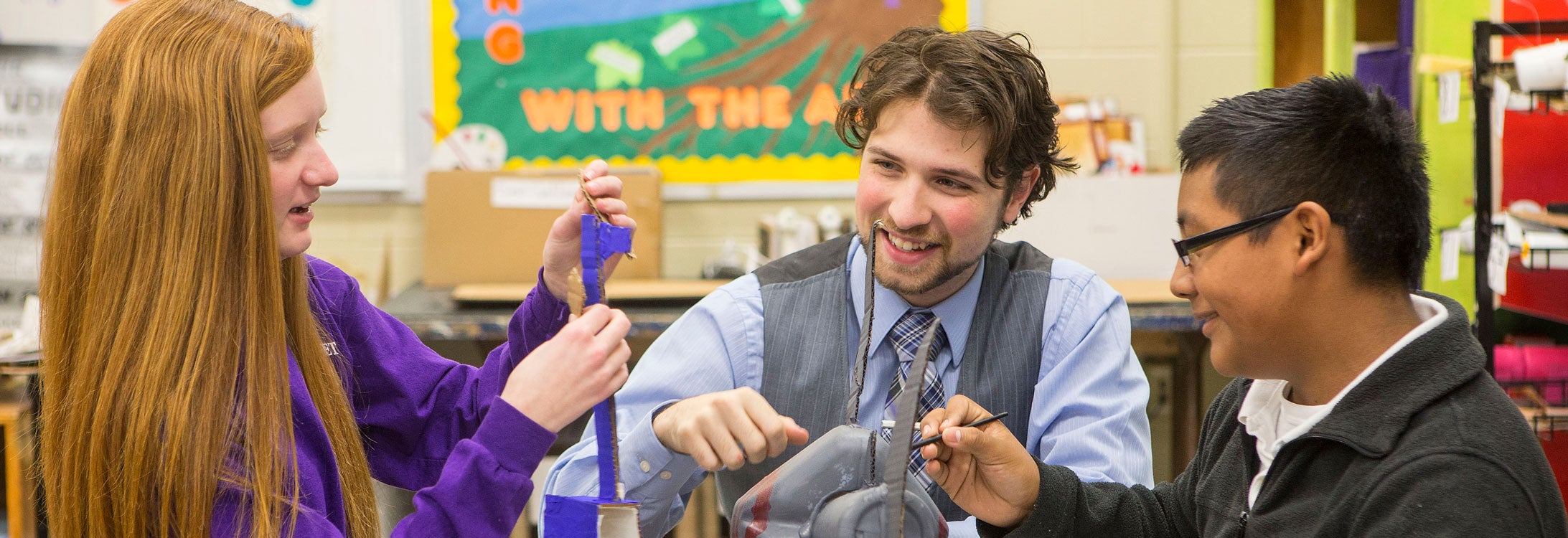Art Education (BFA in Art Education)
The BFA in Art Education combines art making and teaching in a program that develops professionals who are academically and technically proficient; knowledgeable, skilled and reflective in their practice; committed to the empowerment of all people; and the role of public education in a democratic society. Students in Art Education should demonstrate a strong positive attitude toward art, teaching, and children. Art Education students are involved in art production, the study of art, developmental theories of child art, and the roles of the artist, art historian, art critic, and aesthetician in our society.
Students enter ECU as BFA Art Education—Intended majors. After successful completion of lower-level art and education coursework students apply for admission to “Upper Division.”
For information on this process please contact Dr. Robbie Quinn
Art Education Faculty
- Nanyoung Kim, Professor
- Robert Quinn, Professor
- Borim Song, Professor
ECU Educator Preparation Program SARA Statement
Institutional and Professional Licensure Disclosures for Enrolled and Prospective Students
ECU degree programs satisfy the professional licensure and/or certification requirements in North Carolina and prepare students to sit for these exams. However, requirements in other states may be different.
If you are considering a degree program that may, would, could or potentially lead to a professional license and/or certification, please note that at this time ECU may or may not be able to advise whether a program meets requirements outside of North Carolina. Prior to enrolling in a degree program, please discuss this important topic with your program of interest.
The following information applies to all ECU programs that lead to a license to work in any level in public schools, i.e. teachers, principals, librarians, social workers, school counselors, superintendents, etc.
Upon successful completion of educator preparation program degree requirements and licensure requirements for the State of North Carolina, such as, but not limited to, testing and national assessments, candidates will be eligible for an ECU recommendation for a NC license. However, final licensure granting decisions are the sole responsibility of the North Carolina Department of Public Instruction not ECU. Candidates who graduate and seek out of state employment will have to meet the receiving state’s requirements for licensure. There is no automatic licensure reciprocity between states. ECU will verify the completion of an approved, accredited program for candidates who seek employment out of state, and those candidates will be responsible for working with the receiving state to complete any additional requirements needed to obtain the license for employment.
